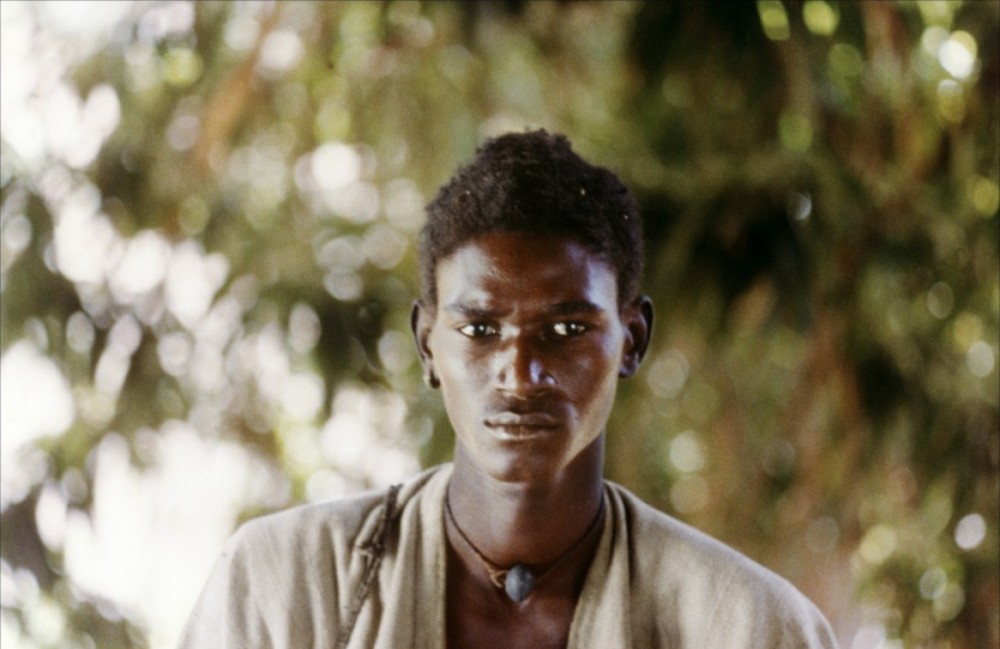
I owe it to you guys to expose my movie biases. I’m a co-editor, after all, you should know what I tend to see and enjoy. That said, I have to admit that even though I went to film school for five years, earned a master’s degree in the field, and have more or less actively watched movies my whole life, I can count the number of films I’ve seen that were made with African money on one hand. An embarrassing admission, sure (there’s something to said here about how academia and the Keepers of the Canon skew American white, but that’s a conversation for another time). But this same embarrassing fact likely hindered my appreciation for Yeelen, a Malian co-production you may known under its English title, Brightness. Not to say I disliked the film; I found it poetically charged and beautifully shot. I’m saying that if I were better versed in African film, that I probably would have caught Yeelen‘s nuances and, ultimately, liked the film more than I did.
Yeelen feels like a condensed version of a Homeric epic, following the trials of Niankoro (Issiaka Kane), a young sorcerer who is on the run after foreseeing a deadly confrontation with his vengeful father, who is also a sorcerer. Along the way he crosses other villages with other languages, seeks sacred totems, and helps out a neighbouring king. These episodes and more unfold in a loose, rambling style lifted straight from the oral traditions these legends originate from. It gives Yeelen a remarkably impressionistic narrative quality at times, but it too often leads to dull stretches where the space between beats feels interminable.
That said, when the film engages with its more ritualistic aspects, it does so to transfixing effect. Many of the film’s most striking images come in moments of ritual or prayer, notably the low-key meadow sequence and the fire-and-brimstone sacrificial sequence at the beginning of the film (note: animal lovers beware, this one has a chicken meeting its maker in very unpleasant fashion). Throughout,Yeelen has the same elemental bent as Andrei Tarkovsky’s Stalker, but where that movie covered mostly water and earth, Yeelen adds air and fire to the mix as well. Much is made of the transformative properties of the elements: water cleanses, fire razes, air dissipates, and earth engulfs. Director Souleymane Cissé and cinematographers Jean-Noël Ferragut and Jean-Michel Humeau take full advantage of the West African desert’s beautiful landscapes, trotting about power shot after power shot of the wilderness. It stands in stark contrast to the dangerous, doomed quest the protagonist sets out on.
In that respect, some parallels can be drawn between Yeelen and Nicholas Roeg’s Outback drama Walkabout, another exquisitely-shot coming-of-age-in-the-wild jam. But this movie basically doubles as a Malian folk document; it doesn’t have the colonialist undertones of Walkabout. It feels more like an attempt to transpose regional legends from oral account to film. To what extent it succeeds in that regard I couldn’t possibly say (see: the opening paragraph of this review), but as a poetic/impressionistic bildungsroman kind of deal, it’s aces.
—
Yeelen is available on DVD from Amazon.
Directed by Souleymane Cissé; written by Souleymane Cissé; starring Issiaka Kane, Aoua Sangare, Niamanto Sanogo, Balla Moussa Keita, and Soumba Traore; 105 minutes.



 Derek
Derek
 Isabelle
Isabelle